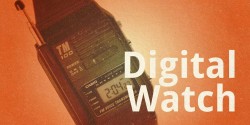While internet radio is sometimes thought of as the wild and untamed cousin of terrestrial broadcast, it’s not entirely unshackled. While web broadcasters don’t require an FCC license, and are unrestricted with regard to using four letter words, stations still have to have to pay up for the right to play recorded music. Even if you find a way to host your station’s stream for free, eventually you’ll have to pay royalties if you play any tunes.
SoundExchange is the non-profit organization responsible for collecting one set of royalties–so-called “mechanical” royalties for recorded music–with that money going to the labels and artists that own the copyrights in the actual recordings. The group just reached a settlement with National Public Radio and the Corporation for Public Broadcasting on the rates that affiliated public and community stations will owe from 2016 to 2020.
SoundExchange reached a similar settlement with College Broadcasters Inc. last October, covering member college stations. It’s important to note that these royalty payments are only required for stations’ internet streams. In the US terrestrial broadcasts are exempted.
Non-commercial radio has had tense relationship with SoundExchange over the course of its twelve-year existence. That tension stems from the fact that unlike Pandora, Spotify, SiriusXM or commercial internet radio, non-commercial stations aren’t generating profit from their broadcasts, and revenue is often variable. This means SoundExchange payments often seem like just one more drain on resource, which is why college and public stations have pushed back to negotiate rates that are consistent with their non-profit model.
The details of the NPR/CPB deal haven’t been released, and the settlement must still be approved by the Copyright Royalty Board.
It also should be noted that non-commercial stations have been obligated to pay songwriter royalties to groups like ASCAP and BMI for decades; royalty obligations are not necessarily anything new. It’s just that paying performance royalties was ushered in with the internet era, in the Digital Millennium Copyright Act of 1995, to be exact.
Back to my opening musing, about how these royalty obligations make internet radio a little less free than might otherwise be assumed. This was on my mind because this week I talked to a reporter about a pirate station she’s covering. The reporter said that the station had actually received notice from ASCAP and BMI demanding that the station pay up. That’s the first time I’d ever heard of an unlicensed station being hounded by these groups, and I guessed that it was probably the station’s popular internet stream that caught their attention, not the relatively obscure FM signal.
Because of freedom from the FCC, internet radio has often been suggested as a strong alternative to unlicensed broadcasting. But hearing about ASCAP and BMI chasing down a pirate’s ostensibly more legit internet broadcast reminded me that the internet alternative may be free as in speech, but is not free as in beer.
The popular and influential internet station East Village Radio actually started out as an unlicensed FM in 2003 before moving to the supposedly safer environs of internet broadcasting. Yet, EVR closed down last May after an eleven-year run, saying “licensing fees and internet costs” were too large for the station to cover. And, because it wasn’t a non-commercial broadcast station, EVR couldn’t take advantage of the lower rates negotiated by the likes of NPR and CBI.
Although in the past I’ve resisted the equation between pirate radio and internet radio, perhaps the internet station that resists paying royalties is just a little more pirate than one that does. That broadcaster isn’t likely to have the FCC or federal marshals knocking at their door. However, still possible is a visit from a process server with a subpoena for an appearance in civil court when you get sued for back royalties.
Now, I’m not advocating that US internet stations try to dodge paying songwriter and performer royalties, though there is a case to be made that independent stations that generate little in the way of revenue or profit are at the greatest disadvantage. Rather, I think it’s useful to recognize the constraints of both internet and terrestrial radio. Would-be broadcasters are well advised to take these royalty obligations into account ahead of time.



